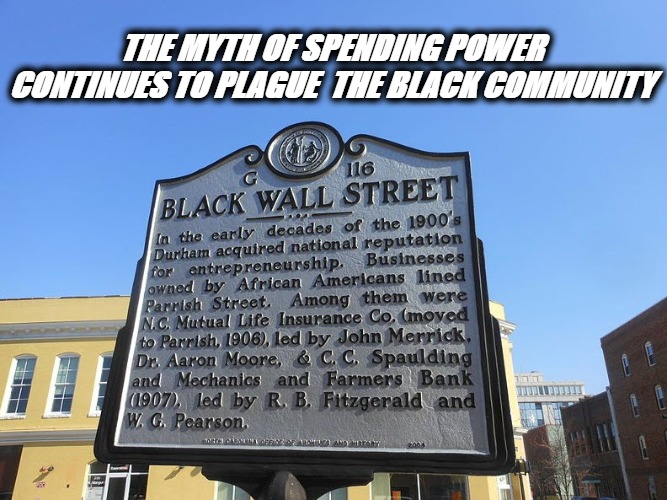by Scotty T. Reid – Author Terrance Amen, in a recent opinion piece opines on the continuous barbershop debate on whether or not Black people in the United States can black business their way out of poverty and racial oppression if they just change their spending habits. As many before me have pointed out, including Dr. Martin Luther King Jr. when speaking to the white conservatives of his day said, “its a cruel jest to tell a bootless man to pull himself up by his bootstraps”. In fact, it is a crueler jest when a black person tells black people living in poverty under racial oppression that somehow they are choosing their existence because they won’t spend their money wisely during a point in US history when wealth inequality is at its greatest.
Terrance Amen says,
The real solution to many of the problems in our community lies with us and until we realize this, those problems will continue. We all know about the disgusting video showing the murder of Brother George Floyd, but what about the many others that weren’t videoed. If you think about this, in a lot of these cases, not all, the main problem was lack of money, which makes us as a community have to do things we wouldn’t have to do if we had our own financial resources.
The major problem as I see it is spending a trillion dollars every year outside our community. This is and will always be the major problem for our community. That trillion dollars we spend every year outside our community could be used to create or recreate our institutions like banks, insurance companies, clinics and hospitals, major TV and movie production companies, supermarkets, schools, businesses, and anything else we need to rely on our own community for our livelihood. We celebrate our greatest leaders every year, but refuse to do what they all said, which is to do for self. I believe fear is the major cause. We have athletes and entertainers who are scared to come together, in order to create our own leagues and major production companies. But they aren’t the only ones. They’re just a microcosm of our community.
The problem with implying that black people are “spending a trillion dollars every year outside our community” is that it is factually incorrect yet is a popular talking point of those who blame black people for their current economic conditions. It is also implying that if a person doesn’t have wealth, becoming a victim of police violence is their fault. This absurd argument is being made when black families make up a bulk of the county’s homeless population. Black people spend money with Black businesses that are within their communities. Barbershops and beauty salons are a lucrative service sector industry, not so much during COVID 19 restrictions. However, those are just about the only black-owned businesses in predominately black communities. You do see the occasional retail shop open but few survive. The bulk of what Black people spend their money on is housing, food, and utilities and one would be hard-pressed to point to any black-owned business providing those services nationwide.
Jared Ball in his book “The Myth and Propaganda of Black Buying Power” explains the origins of the myth of black buying power and the rhetoric used to promote this concept. Ball “looks at historical figures from across the political spectrum who have propagated the myth of black buying power, including Martin Luther King, Jr., Malcolm X, Amos Wilson and Louis Farrakhan”. The book provides an original contribution to the racial wealth gap literature being marketed.
When Black people are victimized in racially hostile environments, their bank accounts or lack thereof are not the primary reason they are targeted for oppression in a system practicing racism and prison slavery. Not a single person participating in the current uprising against state violence has ever said that protesting alone was going to solve any problems and it is disingenuous to insinuate that organizers and everyday people believe those actions alone will end racism and state violence. Stop victim-blaming other black people with myths.
